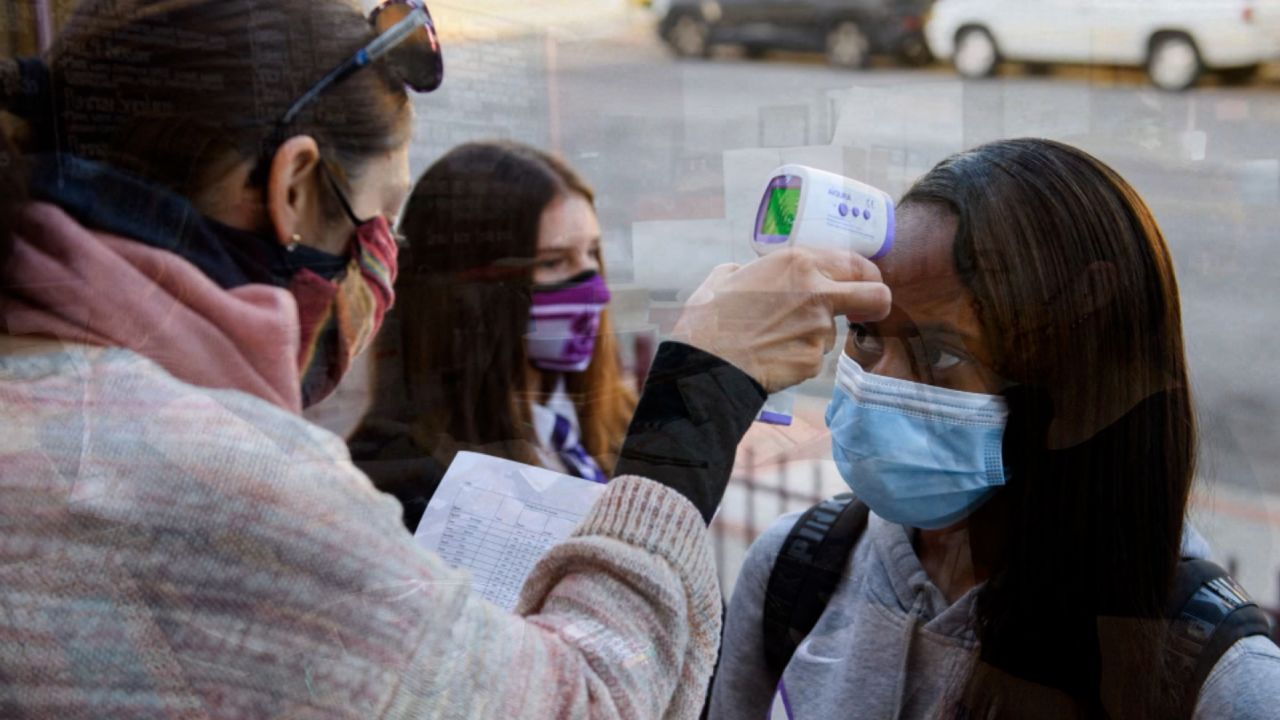Editor’s Note: Peggy Drexler is a research psychologist, documentary producer and the author of “Our Fathers, Ourselves: Daughters, Fathers, and the Changing American Family” and “Raising Boys Without Men.” She is an executive producer, most recently, on “My Name is Pauli Murray,” a film that premiered at Sundance, is now streaming on Amazon Prime Video. The opinions expressed in this commentary are hers. View more opinion on CNN.
More than two years into the pandemic, getting a Covid diagnosis has become fairly commonplace: According to the Centers for Disease Control and Prevention, some 80 million Americans have contracted the virus at least once, out of a total US population of about 329 million. And if you consider all the people who contracted the virus but may never have received a formal diagnosis, health experts tell us about 43 percent of the country has been infected with Covid.
Most of us know someone who’s had it, and may even have gotten it once or twice ourselves. Still, there are plenty of people who haven’t had the virus, and that might be one reason a positive test result still makes headlines for public figures.

But maybe being famous isn’t reason enough anymore to tell us all about your Covid diagnosis.
Remember when Hollywood star Tom Hanks and his wife actor Rita Wilson shocked the world with their announcement they had tested positive, making them among the first major American celebrities to reveal they’d contracted Covid? It was a critical moment when we all paused to take stock of the ferocity of this new virus, and to take in the reality it affected the rich and the mighty as well as ordinary people.
Happily, the couple appears to have made a full recovery, even though Covid was at its deadly, pre-vaccination stage, when we were all still trying to figure out how best to protect ourselves. It was a phase of the pandemic when some people who seemingly were the picture of health suddenly became seriously ill, and sometimes even succumbed to the disease.
Mercifully, thanks to public health measures like vaccinations and masking, that happens much less frequently. What we’re more likely to find now, when famous people tell us they’ve got Covid even though they’re vaccinated and boosted, is they’ve got a bad case of the sniffles.
Over the past couple of weeks, both Hillary Clinton and former President Barack Obama tested positive for Covid, and promptly announced the news on Twitter. Neither is an active political figure, and both reported, even as they were disclosing their illness, their symptoms were mild, not any worse than what one would expect with a cold. If Obama came down with the flu, would we expect that he’d tell the world? Would we even care?
Governments and health officials talk about learning to live with Covid, an acknowledgement the virus may be around, in some form, for a very long time. That means learning to coexist with it using tools like vaccines, masks and restrictions as needed. It does not, necessarily, mean making headline news out of every last famous person’s positive test. If Covid is now a fact of life, this constant alert could be, for many, a disruption that prevents them from accepting that this is, at least for now, our new reality. It keeps Covid at the forefront, and keeps us in a heightened state of anxiety.
And yet, we probably shouldn’t expect these announcements to go away anytime soon. While the stigma against testing positive has dwindled – thanks, in large part, to the omicron variant which proved highly contagious, even among the vaccinated – the politics surrounding Covid have not diminished, and may never.
Two recent surveys, one from the Kaiser Family Foundation and the other from Gallup, showed gaps in vaccination rates across racial and ethnic groups have largely disappeared, while those reflecting political affiliation have widened substantially. Politicians will surely continue to reveal their status for as long as vaccination status falls along party lines, thereby reinforcing those party lines. Both Clinton and Obama used their testing announcements to plug the vaccine and encourage anyone unvaccinated to reconsider. Minnesota Republican gubernatorial candidate Scott Jensen, meanwhile, is one of a number of prominent Republicans who wrongly cite previous infection as a reason to not get the vaccine.
And yet, there is undeniably an upside to keeping Covid at the forefront of our minds. There’s a danger in allowing ourselves to assume we’ll all get the virus eventually, and to simply accept that fact. In the end, the way we will know we’ve finally reached the endemic stage of the Covid pandemic is when most of us will keep on living our lives, even with a positive diagnosis. Contracting Covid will no longer be something to shout from the rooftops about, while simply getting on with life will be something to cheer.
But living with Covid doesn’t mean pretending it doesn’t exist, and it’s still important to avoid getting the virus if you can. For some, it can have long-lasting health implications. For others, it can lead to death. There is much, too, we still don’t know about its long-term effects.
What living with Covid means is acknowledging its ongoing existence and that certain precautionary measures are important, and those measures may change as new variants emerge or waves of infection come up. In that way, continuing to hear about famous person X’s infection is a helpful reminder: We’re still in this. It’s not over yet, despite mask requirements easing and cases going down in many parts of the country and world.
And, frankly, it’s still important for “regular” folks to be candid about their own infection, if and when it happens. Encouraging anyone to keep it to themselves is a public health risk. While Hillary Clinton’s positive test has no impact on most of us, our coworker’s does. And if Clinton’s announcement helps reinforce to that coworker a positive test is something we just share, then it’s a useful tool.
Medical status is private until it has the potential to impact another. Do we want to hear about a famous person’s STD diagnosis? Not unless we’re sleeping with them. But hearing that information, not unlike hearing about their positive Covid test, undeniably helps lessen any stigma while issuing an important reminder: We’re responsible for more than just ourselves.
Correction: An earlier version of this piece incorrectly identified Scott Jensen, a Republican contender in Minnesota's gubernatorial race.







